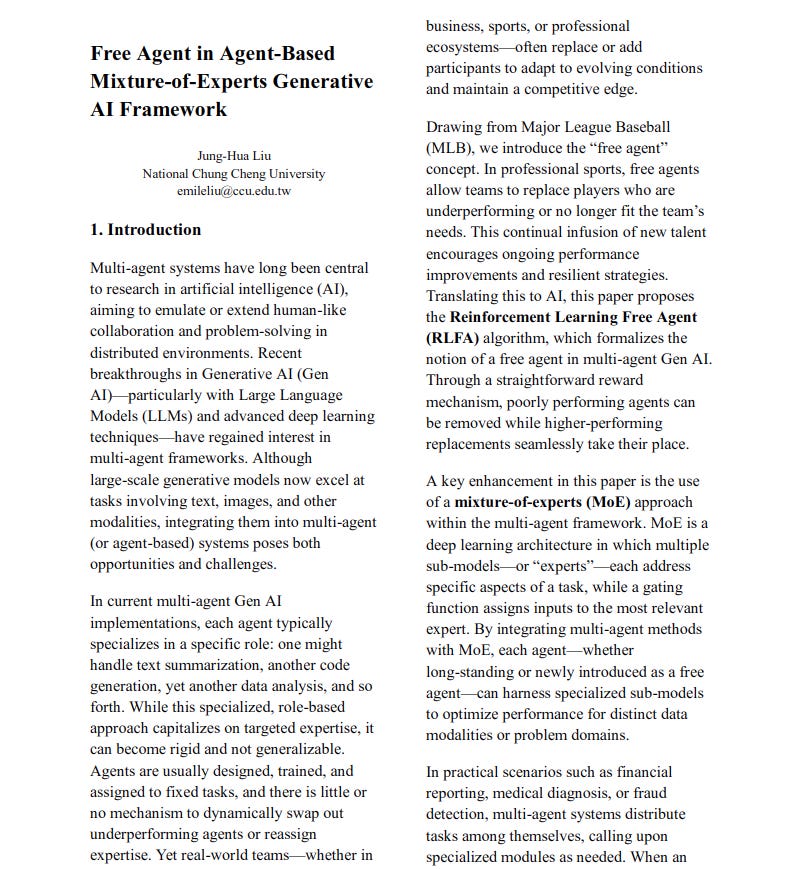"Free Agent in Agent-Based Mixture-of-Experts Generative AI Framework"
Below podcast on this paper is generated with Google's Illuminate.
https://arxiv.org/abs/2501.17903
The problem is that current multi-agent Generative AI systems lack a way to automatically replace underperforming agents, leading to stagnant performance. This paper introduces the Reinforcement Learning Free Agent (RLFA) algorithm to address this issue by dynamically replacing poorly performing agents with better ones.
-----
📌 RLFA introduces automated agent replacement using reinforcement learning. This dynamic approach directly tackles performance degradation in evolving multi-agent systems. It offers a practical method for continuous improvement.
📌 Integrating mixture-of-experts with RLFA allows each agent to specialize further. This combination enhances adaptability and robustness. The gating mechanism ensures efficient expert utilization within dynamic agent roles.
📌 The free-agent concept enables seamless upgrades in critical applications like fraud detection. RLFA's staged integration and performance-driven access control enhance security during agent transitions.
----------
Methods Explored in this Paper 🔧:
→ This paper introduces the Reinforcement Learning Free Agent (RLFA) algorithm.
RLFA is inspired by the "free agent" concept from Major League Baseball.
→ RLFA allows for dynamic replacement of underperforming agents in multi-agent systems.
It uses a reward mechanism to evaluate agent performance.
→ Agents accrue "service time" based on performance metrics like task completion and accuracy.
Underperforming agents can be "released" before reaching full service time.
→ Released agents enter a "free-agent pool" and can be rehired or replaced by better-performing agents.
RLFA incorporates a mixture-of-experts (MoE) architecture within each agent.
→ MoE enables agents to use specialized sub-models for different aspects of tasks.
A gating function in MoE directs inputs to the most relevant sub-expert.
→ RLFA uses performance evaluation, trigger conditions for release, and a free-agent pool for replacement.
New agents may operate in a probationary "shadow" mode before full integration.
-----
Key Insights 💡:
→ RLFA creates an adaptive and competitive environment within multi-agent systems.
It ensures continuous improvement by replacing underperforming agents.
→ RLFA enhances fraud detection by allowing for rapid adaptation to new scam patterns.
The system prioritizes privacy and security through partial observability for new agents.
→ MoE integration amplifies the benefits of dynamic agent replacement by enhancing agent specialization.
RLFA offers a mechanism for continuous upgrades by incorporating new, more capable models.
-----
Results 📊:
→ In a fraud detection use case, an incumbent agent's accuracy dropped from 95% to 75% with new scam patterns.
→ A free agent in "shadow mode" achieved 88% accuracy and then surpassed 90% in regular deployment.
→ The free agent permanently replaced the incumbent, restoring and exceeding previous performance levels.


